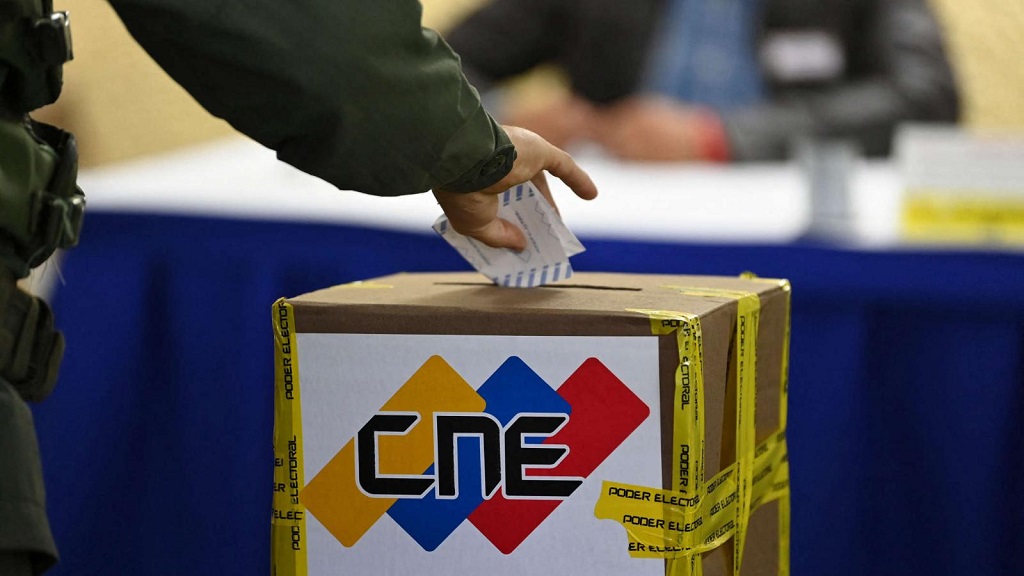
CARACAS, July 14 (NNN-PRENSA LATINA) — This week, most Venezuelan presidential candidates have been showing respect for peace over the ongoing electoral campaign.
At the end of the first 10 days of this paramount step of the electoral schedule, which will finish on July 25 at midnight, the forerunners would have presented their proposals to the voters and made promises to advance in the country’s development, although with opposing visions.
Notwithstanding the electoral speeches of most of the presidential candidates contrast in the political sense of moving the nation forward, there is a distinctive element in which almost all of them bet, but with nuances, on defending national democracy, non-interference from abroad and economic progress.
Nicolas Maduro, candidate for reelection, defended these concepts when he reiterated on Friday the idea of promoting a great national dialogue among all Venezuelan social, political and economic sectors, for which he announced that if he wins, he would propose to sign a first decree in that direction one day after the July 28 elections.
He also praised Venezuelans can be achieved, reflecting on the path traced in recent years in his economic strategy and the progress made in this area.
Maduro further addressed the National Council of Productive Economy on the lowest inflation attrition achieved in 39 years, he pondered that this is a “breakthrough of the national, entrepreneurial and collective effort of the whole country.”
These are elements that come together and create “virtuous circuits in the domestic economy, and the more production grows, the stronger the economy is and the more inflation is controlled in real terms,” he assured.
The proposal of the head of State, who is running for his reelection and third consecutive term, agrees in a certain sense with that of the presidential candidate for the Solutions for Venezuela party, Claudio Fermin, who proposed to boost “a Government of political wideness” with all national sectors.
Fermin deemed that the role of the opposition is to get out of a government by any means, so he rejected coups d’état, foreign interference, or ” permanent agitation by the blockade, as a strategy to worsen the crisis.”
In addition, the candidate for Democratic Action party, Luis Eduardo Martinez, considered that “we all have to work together for Venezuela, no matter what political party one belongs to and not even who one voted for, what we need is to be united,” he said.
On an interview with Radio Nacional de Venezuela, Martinez pointed out the political difference observed in the face-to-face and social media, and noted that in the former “there is a desire to participate and solve everything in peace,” while on digital platform insults, disqualification and fake news prevail.
As novel elements of the current campaign stands out the decision made by at least six mayors of the opposition, who declared themselves independent and garnered their support to candidate Maduro as they are willing to defense peace, democratic stability and reject extremist violence.
“We denounce, and reject, any attempt to return to useless diatribe and violence as an instrument to obtain political and power positions,” four of them stressed in a communiqué.
The Regional Coordinator of the Electoral Social Movements of the Vente Venezuela Party of Carabobo Felix Rivas joined the burgomasters of municipalities of the states of Cojedes, Barinas, Anzoategui and Tachira, so he withdrew his support to the candidacy of Edmundo Gonzalez.
The far right-wing politician argued that Gonzalez is a “leap into the void, he means a danger to peace and democratic stability.”
On Tuesday, the United Nations Panel of Electoral Experts arrived in Caracas to accompany the electoral process, which will present to UN Secretary General Antonio Guterres, a report with “recommendations on improvements that could be made in future electoral processes in Venezuela.”
The group of experts made up of four people, two women and an equal number of men, is carrying out an intense agenda of meetings that already included Foreign Minister Yvan Gil, the board of directors of the National Electoral Council and Defense Minister Vladimir Padrino.
The UN delegation also plans to meet with candidates, political parties and others involved in the electoral process.
Up to date, over 635 international observers have confirmed their participation in the July 28 elections, to which a total of 21,620,705 voters are summoned to the ballots. — NNN-PRENSA LATINA





